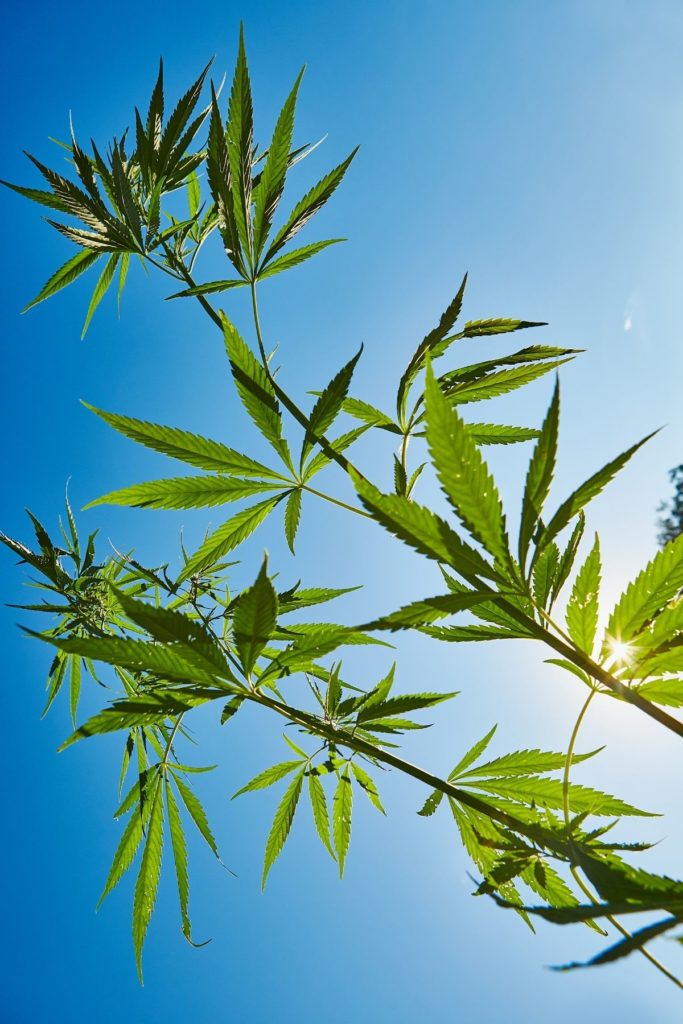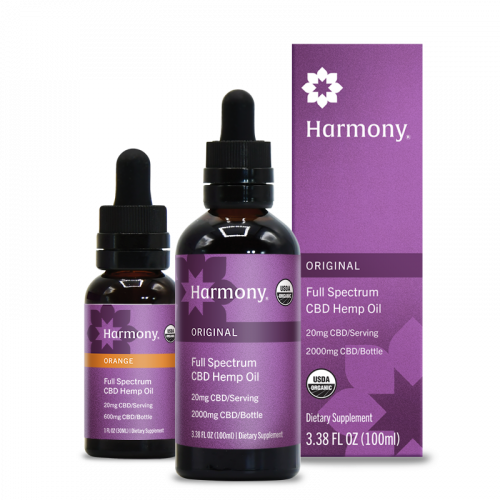What is Full-Spectrum CBD Oil?
All You Need To Know!
What is full-spectrum CBD oil? In this post, we will run down everything that you need to know and more!
Cannabidiol, more commonly known as CBD, seems to be everywhere these days!
It’s true–CBD can be life-changing. But getting started with it can be overwhelming at times.
If you’re just starting on your CBD journey, you’ll find there are so many different terms used to describe CBD that you might not be familiar with. One of those is “full-spectrum.” What does that mean?

What is full-spectrum CBD?
CBD isolate, broad-spectrum, or full-spectrum?
There are three main types of CBD and their names refer to how much of the hemp plant is included in the CBD extraction.
While federally-regulated, whole-plant hemp extract never contains more than 0.3% THC, it does contain a multitude of other molecular components such as cannabinoids and terpenes.
Sometimes, some of the components of whole-plant hemp are separated out as an extra step in the extraction process, which results in CBD isolate or broad-spectrum CBD oil.

CBD Isolate
CBD isolate is exactly that–isolated CBD. It contains no other cannabinoids, and does not contain terpenes. CBD isolate is the most processed type of CBD, and can often be synthetic.
Broad-Spectrum CBD
Broad-spectrum cannabidiol begins as full-spectrum CBD but then goes through another processing step to remove all THC.
Full-Spectrum CBD
Full-spectrum CBD oil contains all the terpenes and cannabinoids (read on for more about these) present in whole-plant hemp, and may also contain trace amounts (less than 0.3%) of THC.
What does "full-spectrum" mean?
Full-spectrum CBD oil is a whole-plant hemp extract.
Unlike CBD isolate or broad-spectrum CBD, full-spectrum CBD oil contains all of the terpenes and cannabinoids that whole-plant hemp contains. And because federally legal hemp may contain up to .3% THC, full-spectrum CBD oil can also contain trace amounts of THC.
But what are these other hemp components, and why are they important?
Cannabinoids
Cannabinoids are chemicals that bind to receptors in your endocannabinoid system. (Our bodies actually produce cannabinoids too!) Cannabinoids produced by human or animal bodies are called endocannabinoids. Cannabinoids present in plant life are called phytocannabinoids. Individual cannabinoids can also be produced synthetically in a lab.

THC and CBD molecules are present in hemp, as are other cannabinoids.
While THC and CBD are the most prominent (and most famous!) cannabinoids, the cannabis (or hemp) plant actually contains more than a hundred different cannabinoids, including CBG, CBN, CBC, THCV, Delta-8-THC, CBDV, THCA, and CBDA.
Cannabis is not the only plant that produces cannabinoids, but it contains more than most.
Scientific research regarding the benefits that these various cannabinoids can have on the human body is still ongoing, with new discoveries occurring all the time.
Terpenes

Lemons, peppercorns, hops, and evergreens share some of the same terpenes as hemp.
Does full-spectrum CBD oil make you high?
No. It is highly unlikely that you would experience any impairment from using full-spectrum CBD oil.
THC is the only intoxicating cannabinoid. And under federal law, hemp plants can only contain a maximum of 0.3% THC. This is a trace amount of THC which, while it may help contribute to the entourage effect (read on for more about this), is truly a tiny amount.

Full-spectrum CBD will not affect your ability to drive or operate heavy machinery.
While CBD may act upon your mind enough to boost your mood and/or limit your anxiety and pain, it does not cause intoxication or impairment of any kind.
As long your full-spectrum CBD oil is made from hemp, you can remain confident in your ability to stay sober and alert while using it.
Is full-spectrum CBD oil better?
Yes. The “entourage effect” means you get greater relief.
Because full-spectrum CBD oil contains all the cannabinoids and terpenes that whole-plant hemp contains, lots of folks experience better results with full-spectrum CBD oil than they do with CBD isolate or broad-spectrum CBD oil.

What is the best full-spectrum CBD oil?
It is scientifically proven that all of the molecular elements in hemp and work together in a synergistic way and are more powerful as a team. This is called the entourage effect– a theory first proposed by Dr. Raphael Mechoulam in 1999.4
Many people who switch from CBD isolate to full-spectrum CBD oil find that they require a much lower dosage to enjoy the same benefits.
It just doesn’t make sense to throw the baby out with the bathwater, so to speak. CBD is great, but it’s even greater when it works with its entire cannabinoid and terpene team.
Organic
Our CBD begins with our USDA-certified organically grown hemp plants, which thrive under the South Carolina sun. We are passionate about regenerative farming, and our resulting healthy soil is especially nourishing for our organic hemp.
Solvent -Free
Once the hemp is harvested, it is sent through our unique, solvent-free extraction process. Our flower MCT infusion method ensures that all the beneficial elements of hemp remain in the product while nothing is added.
Third-Party Lab Tested
Our products are USDA-certified organic and glyphosate-free. Every product includes a batch report from a third-party lab providing documentation of the rich variety of cannabinoids and terpenes in our full-spectrum extract, while no pesticides, microbiological contaminants, heavy metals, solvents, or mycotoxins.
Now that you know all about full-spectrum CBD oil, what are you waiting for? It’s time to see what Palmetto Harmony can do for you. Shop now!
